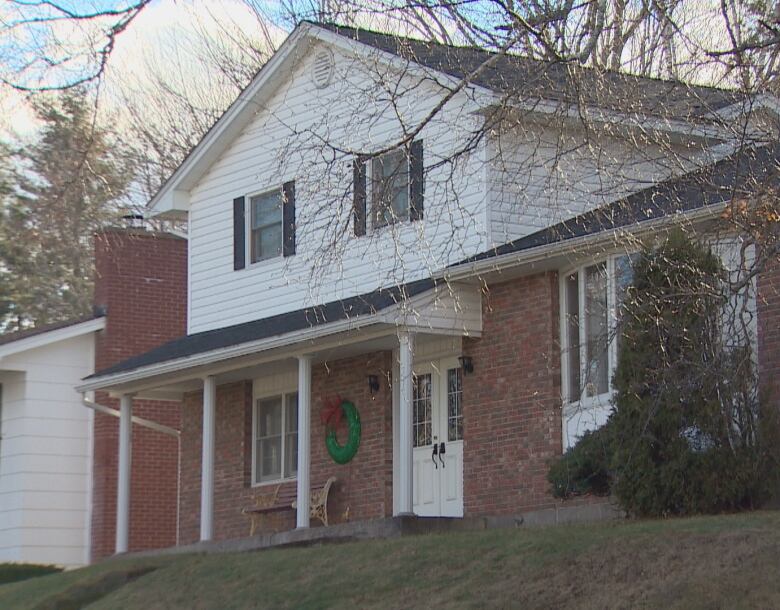Gallant's chief of staff, a key player in the assessment scandal, appealed his own tax hike
Auditor General Kim MacPherson named Jordan O'Brien as one of those involved in fast-tracking new system

Premier Brian Gallant's chief of staff, Jordan O'Brien, may have been in on the origin of New Brunswick's "fast track" assessment debacle, but property records show he avoided being burned by it himself after successfully fighting a $14.42 property tax increase on his own house.
"My wife and I observed that several homes similar to ours on our street had sold and/or were listed for sale at prices lower than our assessment," O'Brien wrote in an email to CBC News to explain how he came to dispute his own tax treatment last spring.
"We accordingly completed the request for review form citing this information and submitted it."
O'Brien's challenge was eventually successful. In September, Service New Brunswick lowered the assessed value of his Fredericton home by $23,500 and cut his tax bill by $338.52, even though taxes on it had only gone up $14.42.
Several thousand New Brunswick homeowners in 12 communities were clobbered with inflated property assessments and tax bills this spring after Service New Brunswick rushed the implementation of a new digital "mass appraisal" system into place two years ahead of schedule.
The roll-out was poorly executed and a record 18,000 property owners challenged their tax bills. By the end of July, Service New Brunswick had found 4,361 inflated assessments and tax bills with 9,411 objections still to be processed.
Taxes on properties that needed to be fixed were found to be an average of $680 too high.
Mysterious figure
O'Brien is a major but still mysterious figure in the origin of that assessment and tax controversy.
Last month he was named by Auditor General Kim MacPherson as one of two men involved in discussions that led to the new system being rushed into service, although he denies being the cause.
MacPherson was unable to determine whether O'Brien or Gordon Gilman, the former CEO of Service New Brunswick, was behind the ill fated idea but did conclude it had to have started with one of them since it began immediately after the two spoke on the phone.
"It was the conversation between the chief of staff and the former CEO that led to fast track," MacPherson told a pair of Legislature committees about her findings in late November.
Emails on the public record show O'Brien knew one of the expected outcomes of rushing a new assessment system into place would be increased tax revenue from homeowners and others as it unearthed hidden property values and raised assessments accordingly.
"Let's do it," he wrote to Gilman in May 2016 after being shown projections of how taxes would climb on properties being evaluated in a new way.
Objected quickly
Still, when the new assessment system pegged his own house for a $14.42 tax hike O'Brien was quick to object.
Property values have generally been in decline in O'Brien's neighbourhood and he said a house close to his was for sale at below its assessed value when his tax bill arrived. That convinced him his assessment should be falling, not inching up.
"The house two doors down from ours has an attached garage and a paved driveway (our house has neither) and was listed for well below its assessed value," he wrote.
The house O'Brien referred to did eventually sell for $30,800 below its assessed value but few residents in the area seemed to know to take advantage of that development to protest their own bills.

Only four homeowners on O'Brien's 31-house street launched and won tax reductions this year, including him, the new owners of the house that sold below its assessed value and two others.
Those included owners of one house the new assessment system hit with a $575 tax increase and another that suffered a tax hike of $232.
Seven other homes on O'Briens street hit with assessment and tax increases received no relief.
O'Brien's decision to challenge his bill effectively followed the advice of Progressive Conservative Leader Blaine Higgs, who last March urged all property owners to challenge even small increases in their tax bills.
Higgs ignores own advice
Liberal cabinet ministers ridiculed that idea as "irresponsible" and "fear mongering," and although all the publicity did contribute to a spike in objections, ultimately almost 90 per cent of New Brunswick landowners who had a property tax increase ignored Higgs's call — including Higgs.
The new assessment system upped the value of Higgs's Quispamsis home and caused his tax bill to jump $212, but he decided against challenging the amount.
"Had there been a significant change he would have, but there was not and so he did not," said Bob Fowlie, spokesperson for the office of the official opposition.
Also filing no tax challenge was Premier Gallant, although his Dieppe house sits on one of the most poorly assessed streets in the province.
Gallant's property tax bill jumped $362, one of the largest among MLAs. Thirteen of his neighbours successfully challenged their own tax hikes, including seven with smaller increases than Gallant but he, like Higgs, took no action.

